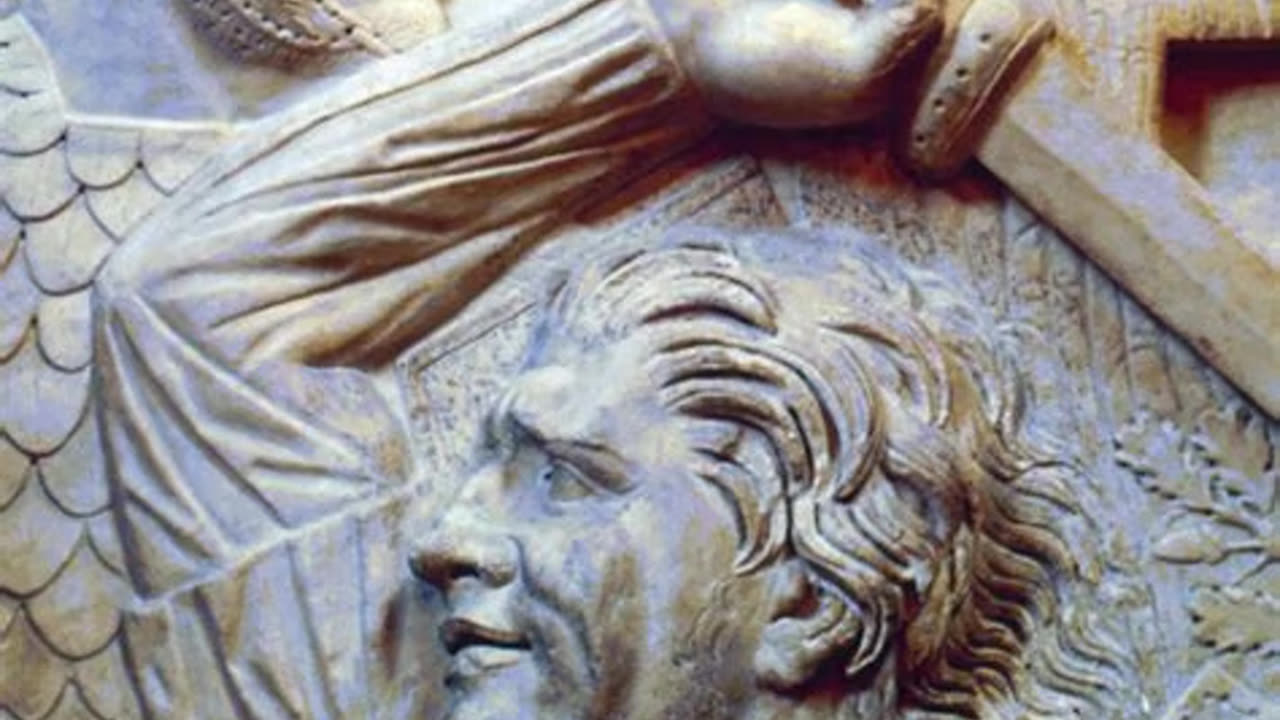Premium Only Content

The Conquest of Gaul by Julius Caesar | Summary
Buy Here: https://amzn.to/43yGyjk
""The Conquest of Gaul"" is a firsthand account written by Julius Caesar chronicling his military campaigns in Gaul (modern-day France and Belgium) from 58 to 50 BCE. In this seminal work, Caesar provides detailed descriptions of his military strategies, battles, and interactions with the Gallic tribes.
The narrative begins with Caesar's initial reasons for intervening in Gaul, citing the threat posed by migrating Germanic tribes and his desire to expand Roman influence. He describes the diverse tribes inhabiting Gaul and the political landscape of the region, including alliances and rivalries among them.
Caesar vividly recounts his military campaigns, detailing the sieges, skirmishes, and larger battles fought against various Gallic tribes, most notably the Helvetii, the Suebi, and the Belgae. He showcases his strategic brilliance and leadership skills, often overcoming numerical disadvantages through superior tactics and discipline.
Throughout the narrative, Caesar also offers insights into the culture, customs, and beliefs of the Gallic tribes, providing readers with a deeper understanding of the people he encountered during his campaigns. He highlights the fierce resistance faced by the Roman legions and the challenges of pacifying and governing the conquered territories.
Additionally, Caesar's account serves a propagandistic purpose, portraying him as a capable and benevolent leader who brought civilization and stability to Gaul. He emphasizes his victories, downplays setbacks, and justifies his actions in the name of Rome's glory and security.
""The Conquest of Gaul"" is not only a military history but also a political manifesto, intended to enhance Caesar's reputation and political standing in Rome. His successes in Gaul contributed significantly to his rise to power and eventual dictatorship.
Overall, Caesar's account of the conquest of Gaul remains a classic work of ancient literature and a valuable historical source for understanding the military, political, and cultural dynamics of the late Roman Republic. Despite its biases and propaganda, it continues to fascinate scholars and readers alike with its vivid portrayal of ancient warfare and conquest."
-
 LIVE
LIVE
vivafrei
6 hours agoMeth Labs Busts in Canada! More Chinese Election Interference? Cross-Fire Hurricane Scandal & MORE!
14,047 watching -
 LIVE
LIVE
The Jimmy Dore Show
1 hour agoDHS to Screen Visa Applicants for WRONGTHINK! Media LYING About Measles Death! w/Norman Finkelstein
4,783 watching -
 LIVE
LIVE
Nerdrotic
2 hours agoMarvel Is SCREWED | Daredevil Afterbirth | G20 is ABSOLUTE Cinema - Friday Night Tights 349 w MauLer
4,779 watching -
 LIVE
LIVE
Dr Disrespect
5 hours ago🔴LIVE - DR DISRESPECT - WARZONE VERDANSK - SOLO WINS
5,827 watching -
 LIVE
LIVE
LFA TV
10 hours agoLFA TV - ALL DAY LIVE STREAM 4/11/25
847 watching -
 LIVE
LIVE
Major League Fishing
1 day agoLIVE MLF College Fishing Championship!
194 watching -

Jeff Ahern
2 hours agoFriday Freak out with Jeff Ahern! (1pm Pacific)
2.9K -
 2:12:33
2:12:33
The Quartering
5 hours agoWild Joe Rogan Stream, China Retaliates, Woke Jerks Review BOMB My Coffee & More!
208K87 -
 1:07:03
1:07:03
Sean Unpaved
5 hours agoNIL Controversy In Tennessee, Second Round of Masters Tee-Off, Flacco's Return To Cleveland!
44.8K3 -
 16:09
16:09
Clownfish TV
5 hours agoSnow White Can't Even Break $100 Million?!
30.4K7